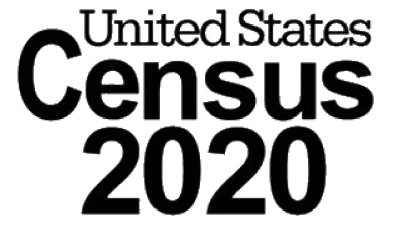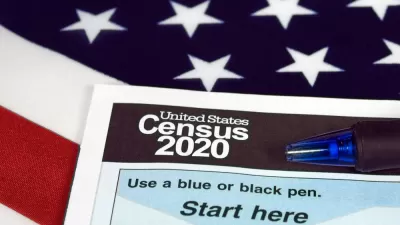A budget shortfall for Census 2020 has already claimed one victim: the timely delivery of the five-year Economic Census.

The Economic Census has been postponed for six months, according to reports, meaning the government will not produce important data about economic activity, jobs, revenue, and more five years after the previous Economic Census.
According to an article by Danny Vinik, "the Census Bureau quietly changed its deadline, pushing it back at least six months," earlier this year. "The agency told POLITICO that it has not publicly announced the delay but confirmed that aspects of the Economic Census were "re-planned," and the results would be out six months late."
The reason for the delay has been blamed on a shortfall of funding. Money that should have gone to the Economic Census instead went to the 2020 Decennial Census. The larger, more famous effort of the Census Bureau is so short of money, in fact, that Commerce Secretary Wilbur Ross went before a House panel to inform them of an "urgent need" for more funding. New estimates place the cost of the 2020 Census at $15.6 billion, or a 27 percent increase from estimates produced by the Obama Administration.
Back to the Economic Census, Vinki writes that the delayed report could have negative effects down the line: "it leaves outdated baseline numbers in place for policymakers, and creates problems for companies that need to comply. Said another census-watcher of the 2017 survey: 'It will always have this asterisk.'"
Vinik also expands the discussion about the threats to the Census beyond congressional budgets and White House neglect, namely, that people don't answer surveys the way they used to. For more information about the preparation process leading up to the 2020 Census, see Planetizen's previous coverage.
FULL STORY: Is Washington bungling the Census?

Planetizen Federal Action Tracker
A weekly monitor of how Trump’s orders and actions are impacting planners and planning in America.

Maui's Vacation Rental Debate Turns Ugly
Verbal attacks, misinformation campaigns and fistfights plague a high-stakes debate to convert thousands of vacation rentals into long-term housing.

San Francisco Suspends Traffic Calming Amidst Record Deaths
Citing “a challenging fiscal landscape,” the city will cease the program on the heels of 42 traffic deaths, including 24 pedestrians.

Amtrak Rolls Out New Orleans to Alabama “Mardi Gras” Train
The new service will operate morning and evening departures between Mobile and New Orleans.

The Subversive Car-Free Guide to Trump's Great American Road Trip
Car-free ways to access Chicagoland’s best tourist attractions.

San Antonio and Austin are Fusing Into one Massive Megaregion
The region spanning the two central Texas cities is growing fast, posing challenges for local infrastructure and water supplies.
Urban Design for Planners 1: Software Tools
This six-course series explores essential urban design concepts using open source software and equips planners with the tools they need to participate fully in the urban design process.
Planning for Universal Design
Learn the tools for implementing Universal Design in planning regulations.
Heyer Gruel & Associates PA
JM Goldson LLC
Custer County Colorado
City of Camden Redevelopment Agency
City of Astoria
Transportation Research & Education Center (TREC) at Portland State University
Jefferson Parish Government
Camden Redevelopment Agency
City of Claremont




























